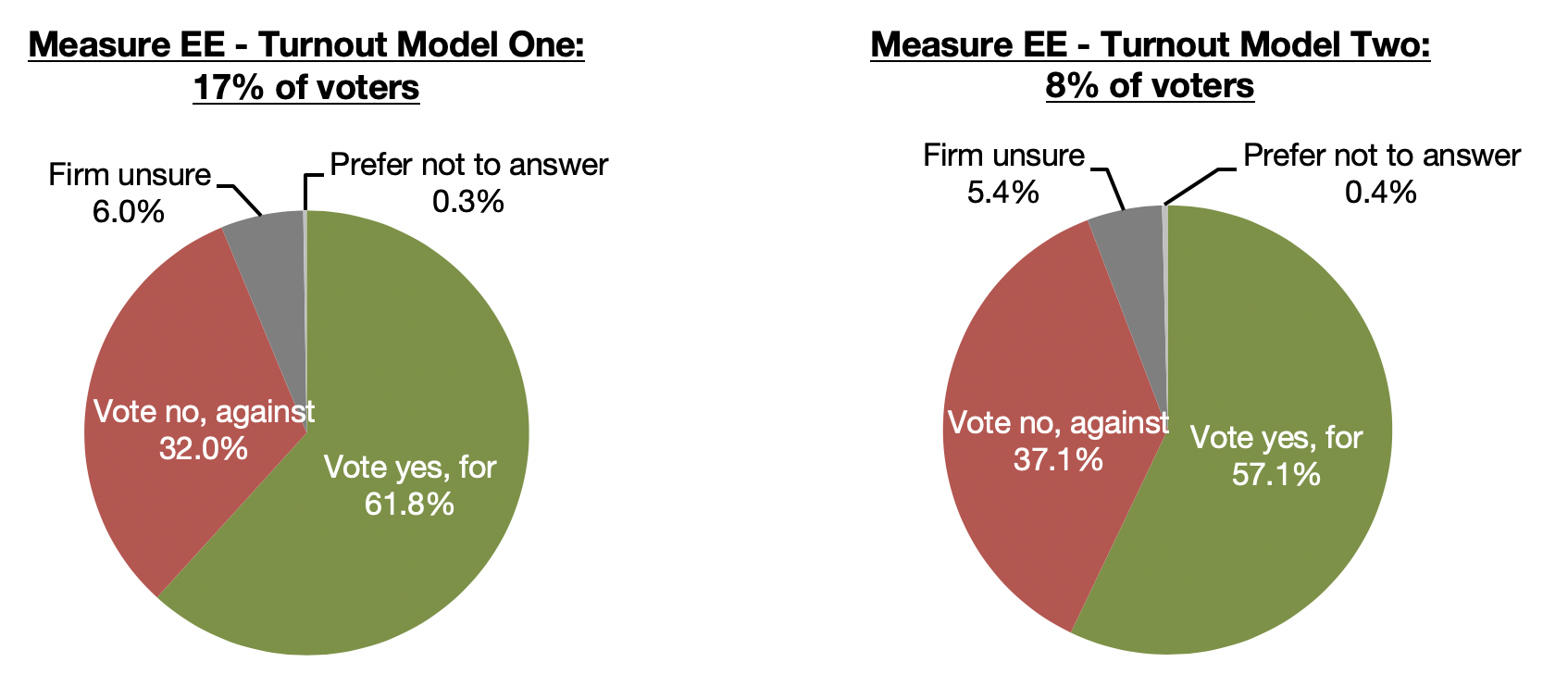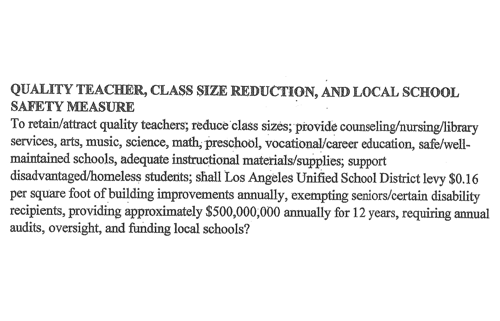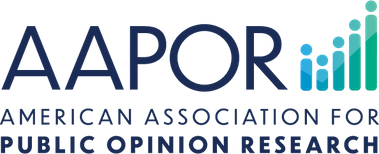Low Turnout Could Sink Measure EE
Low Turnout Could Sink Measure EE
Key indicators suggest success is possible in a higher turnout scenario
UPDATE: Measure EE failed, pretty remarkably. Our research revealed something that does not normally happen in polling, but when it does, we do more discovery work to find out why. Watch Adam Probolsky explain:
Probolsky Research conducted a poll for public interest from May 16-17, among likely voters, about the Los Angeles Unified School District (LAUSD) and Measure EE on the June 4 Special Election ballot.
Measure EE aims to increase taxes by several thousand dollars on most property owners over a twelve-year period to fund local schools. Successful passage requires a two-thirds vote. “There is plenty of time for both sides to target their voters and encourage them to turnout. However, there are few undecided voters left to influence,” explained Adam Probolsky, president of Probolsky Research, an independent, non-partisan polling firm based in California.
The poll tested the exact ballot language voters will see on their vote-by-mail ballot or in the polling booth. Our findings indicate a competitive campaign if turnout is relatively high for a Special Election in Los Angeles. The more likely scenario of a low turnout (about 8%) means the measure will likely fail to reach the 2/3 threshold needed.

Question: Measure EE is on the June 4th Special Election ballot in the Los Angeles Unified School District. Measure EE reads: “QUALITY TEACHER, CLASS SIZE REDUCTION, AND LOCAL SCHOOL SAFETY MEASURE. To retain/attract quality teachers, reduce class sizes, provide counseling/nursing/library services, arts, music, science, math, preschool, vocational/career education, safe/well-maintained schools, adequate instructional materials/supplies, support disadvantaged/homeless students, shall Los Angeles Unified School District levy $0.16 per square foot of building improvements annually, exempting seniors/certain disability recipients providing approximately $500,000,000 annually for 12 years, requiring annual audits, oversight, and funding local schools?” If an election were held today, would you vote yes, in favor of Measure EE, or vote no, against Measure EE?
_______________________________
“If Measure EE fails, it will be in part because voters, regardless of party, do not think that students receive a high-quality education in LAUSD schools,” said Probolsky. “The measure would raise some $6 billion, but it does not appear that voters believe these funds will be enough to make LA schools that much better.”
Voters don’t think students in LAUSD schools get a high-quality education

Question: Do you think students in Los Angeles Unified School District schools get a high-quality education?
_______________________________
As researchers we love presenting data in new and innovative ways, so we created the Public Listening Tool™ — a qualitative research technology. It provides a glimpse into the rationale for why voters within LAUSD are voting yes or no on Measure EE, in their own voice. The comments are transcribed and an overlay of political party and location are included to offer context.
“You will probably be surprised by what some Democratic voters say about why they oppose Measure EE,” said Probolsky. “Republican opposition is pretty stereotypical.”
Supporters of Measure EE are featured first, followed by those who oppose. You can listen and watch here:
Methodology:
From Thursday, May 16, 2019 to Friday, May 17, 2019, Probolsky Research conducted a multi-mode live-interviewer telephone and online survey among likely voters in the Los Angeles Unified School District (LAUSD) June 2019 election.
A total of 400 voters (200 by telephone and 200 online) were surveyed. A survey of this size yields a margin of error of +/-5%, with a confidence level of 95%. Interviews were conducted with respondents on both landline and mobile phones (31.5% completed the survey on mobile phones) and were offered in English and Spanish (11.5% completed the survey in Spanish) languages. For the online survey phase, we invited participation via email. Security measures precluded individuals from completing the survey more than once and allowed only the designated voter to complete the survey. Online respondents were able to use their computer, tablet or smart phone to participate.
Our sample was developed from the voter database maintained by the Los Angeles County Registrar of Voters. Probolsky Research applies a stratified random sampling methodology to ensure that the demographic proportions of survey respondents match the composition of our likely voter universe.
Probolsky Research is an independent, non-partisan market and opinion research company with corporate, election, government, non-profit and other special interest clients.
This research was conducted for public interest — we have no client in this campaign.


